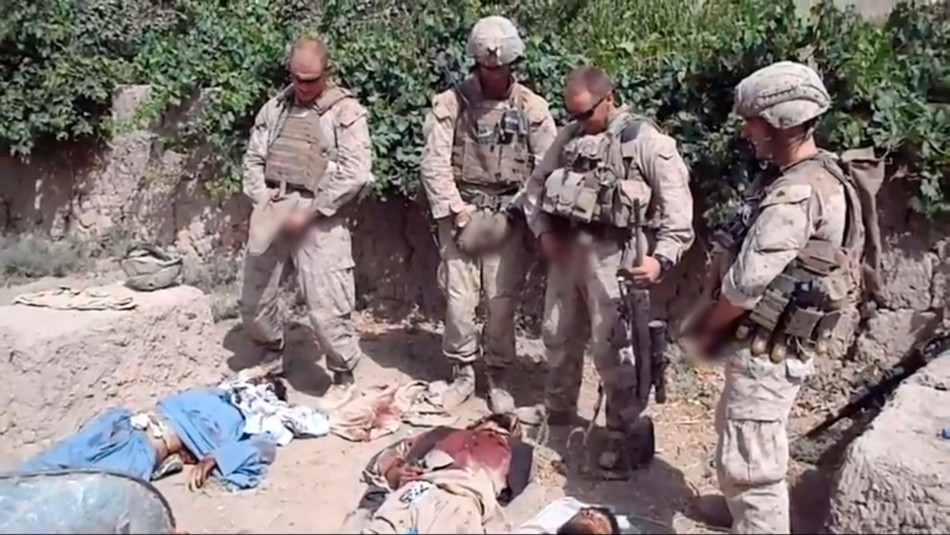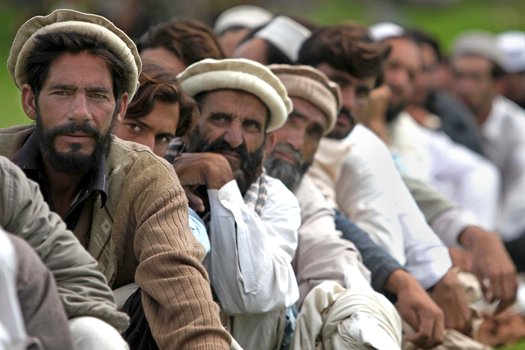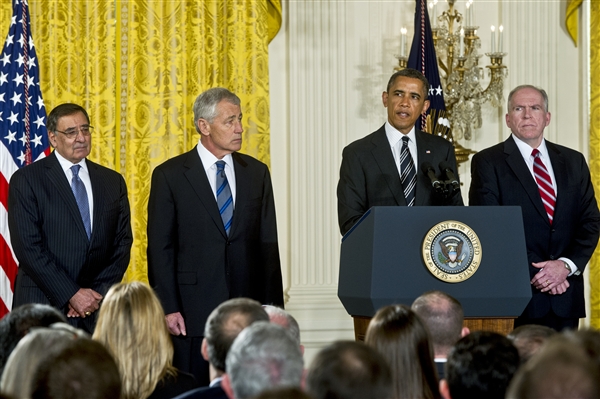
A year ago, the video of US Marines urinating on Afghan corpses surfaced on the internet and shocked most viewers. This week, in the trial proceedings for the Marines’ court-martial, it was revealed that the viral video was one of 12 such videos investigators found filmed that day depicting US Marines “behaving inappropriately.”
The judge in the case was presented with a DVD containing all of the videos. It is 20-minutes long.
This shouldn’t be too surprising to anyone that has managed to divorce themselves from the sterilized depiction of war and its warriors that is constantly propagandized in America. At the time the video became viral, McClatchy reported that Afghans aren’t surprised by the fact that US Marines were urinating on dead Afghans.
“I know a lot of horrible things happen in the south and nobody but the locals know about it,” Jamal Karimi, 32, told McClatchy. “Such things happen all the time, and people talk about it but media hardly report them.”
No matter how many times such dehumanizing behavior on the part of US troops is revealed to the public, the mantra that they are rare exceptions is hardly penetrated. At the time of the release of the urination video, Marine Corps spokesman Capt. Kendra N. Hardesty said in a statement, “The actions portrayed are not consistent with our core values and are not indicative of the character of the Marines in our Corps.”
But as I wrote at the time:
When disgusting photographs of smiling U.S. soldiers proudly standing next to dead Abu Ghraib detainees were released, Americans were basically told to hide their eyes, buy their yellow ribbon bumper stickers and rest assured the incident would be investigated. When news broke of Manadel al-Jamadi, the Abu Ghraib prisoner who in 2003 was hung from his arms twisted behind his back, beaten, and tortured to death at the hands of U.S. interrogators, Americans were told this was the exception and that the war is still just. When the 5th Stryker Brigade in Kandahar – aka “Kill Team” – slaughtered Afghan children for the fun of it, took celebratory pictures next to their corpses, and mutilated their bodies for evidence of their trophy kill, again Americans were expected to buy into the “bad apple” excuse and forge ahead with the support our troops mantra. When American troops forced Afghan civilians to march ahead of them on roads believed to have been filled with bombs and landmines planted by insurgents, Americans were told it would be investigated and promptly looked away.
The point is not that every single U.S. soldier is the type to urinate on the faces of the dead or hunt Afghan children for sport. Rather, the point is that war invades and contaminates the humanity of individuals. And the context of war abroad while Americans sit safely at home pressures people to ignore its brutality in favor of “patriotism.”
All that said, perhaps the most despicable aspect of the war in Afghanistan is not that soldiers do ugly things; it’s that the soldiers shouldn’t be there to begin with.






